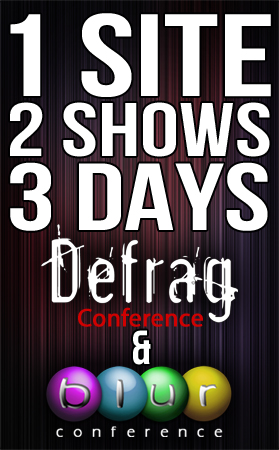I said before that the whole OpenSocial announcement left me kind of flat. Don Dodge is feeling similar feelings. So, while the Valley *freaks* out and echoes its way into hysteric proclamations of Facebook’s death, I’d like to point out the *truly* significant news of the day:
Read more →Big news of the day: OpenSocial (see here, here, or here for coverage). So: A) We all knew this was coming (didn’t we?). B) It *is* a good thing, …but… I’m really left flat by the whole thing. Maybe that’s because we knew it was coming; maybe
Read more →The brouhaha over our collective “bubble” just doesn’t stop. Steve Rubel’s most recent piece is the catalyst this time around — something that Alex responds to (good stuff!). Some quick thoughts: 1. The trauma of the last dot-com bust certainly has an effect. Folks that lived through
Read more →Jeff Nolan (who *will* be at Defrag) points us to a very funny post regarding “what you missed by not going to Web 2.0 last week.” Things like: 1. Useless business cards 2. Worst wifi known to mankind 3. Mark Zuckerberg looked at me 4. Robert Scoble
Read more →I’m rolling out three social networking tools (SocialText, CollectiveX and Eventvue) to Defrag attendees over the next few days, and already I’m feeling the pain of separate logins. The answer to this problem could come in a couple of forms: 1. All social networking tools merge into
Read more →I’m a “cycles” guy. Which is to say that I’m always inherently looking for the cycle or analogy as I read news and history. This, of course, biases how I see the world (and could result in a much larger argument about whether/why history is cyclical or
Read more →By now, surely, you’ve heard the big news of the day: Microsoft, after Ballmer called social networks “faddish,” has gone and invested 240 million in Facebook — a move which apparently values them at somewhere around 15 *billion* dollars. I’ll let a lot of smart folks (smarter
Read more →One of the earliest phrases that I hit upon to help describe Defrag was “networked knowledge.” The idea was that it was something past “knowledge management,” where the knowledge is a passive component in a managed space; and into the idea that the knowledge was an *active*
Read more →I was just thumbing through Mary Meeker’s slides from her presentation at the Web 2.0 summit (taking a break from the detail crush of Defrag), and slides 13 and 14 really caught my eye. Slide 13 shows tech spending as a % of business capex expenditures —
Read more →I was musing on my morning walk about the similarities between the very first Digital ID World (2002) and the very first Defrag (in 4 weeks). The first DIDW (as we took to calling it) gathered together anyone we could find that was interested in digital identity.
Read more →
